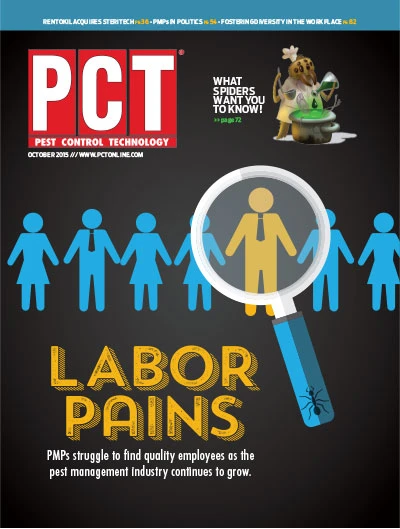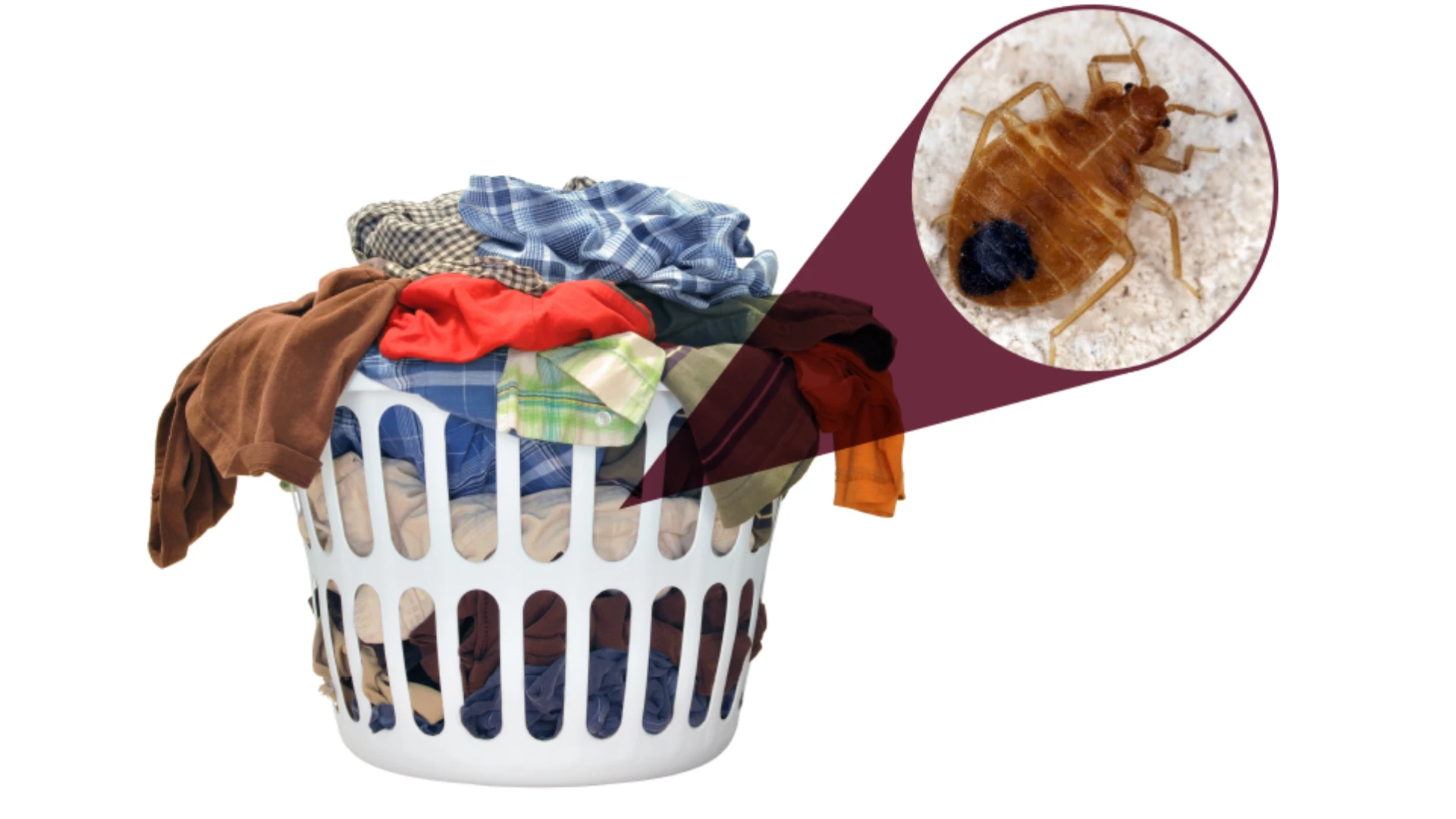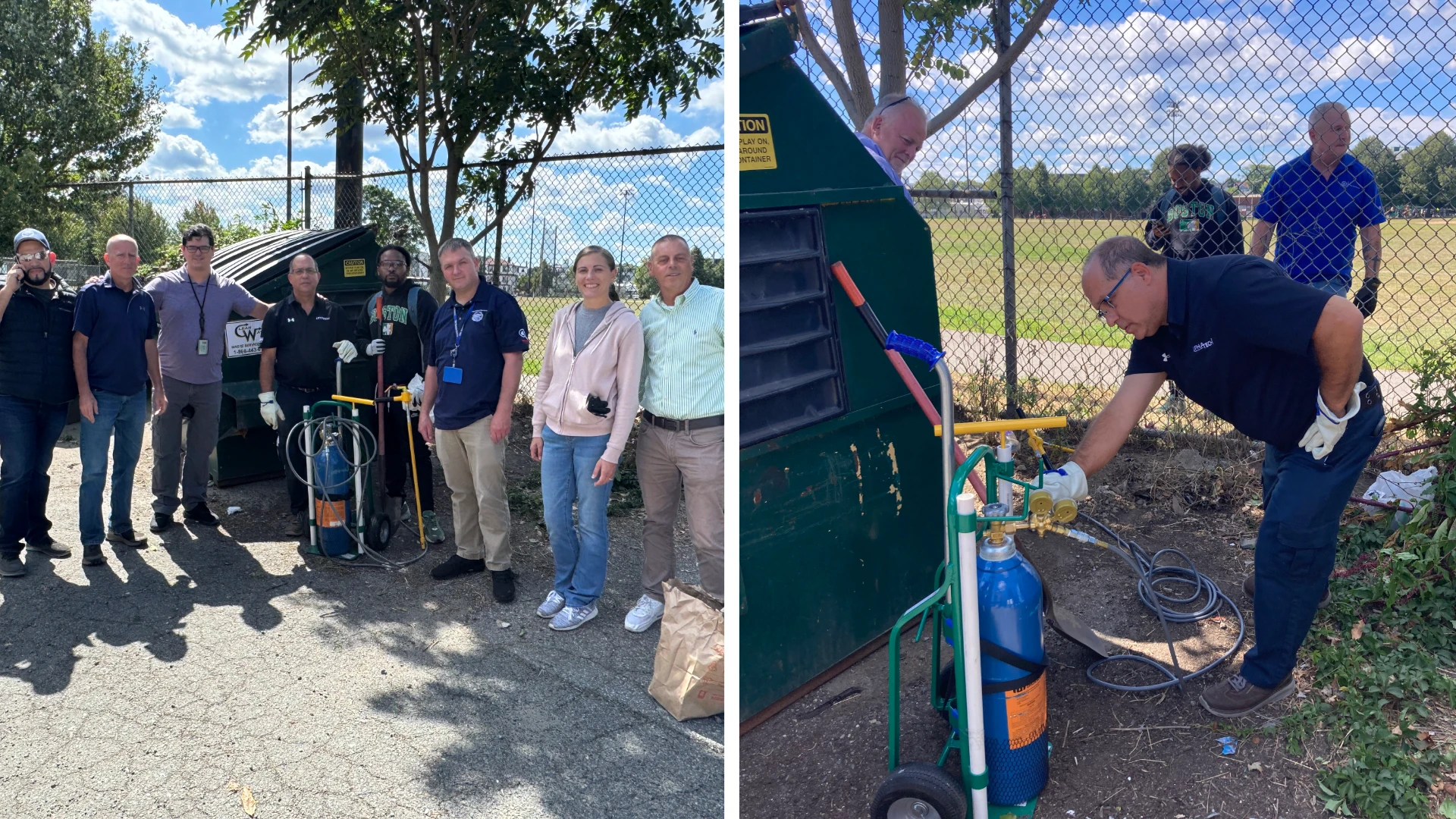 In September, Rentokil announced it had entered into a definitive agreement to acquire The Steritech Group, based in Charlotte, N.C., for $425 million in cash.
In September, Rentokil announced it had entered into a definitive agreement to acquire The Steritech Group, based in Charlotte, N.C., for $425 million in cash.
The deal, which received regulatory approval on Oct. 2, dramatically reshapes the pest control industry by merging Steritech — a $143 million company and ranked #7 on the 2015 PCT Top 100 list — with Rentokil, #4 on the PCT Top 100 list with annual revenues of $390 million.
In a press release, John Myers, president and CEO of Rentokil North America, said, “I am obviously delighted that Steritech has decided to join forces with us, and I am excited about the opportunities for these two fantastic businesses together. The addition of Steritech to our already strong base will build a best of breed capability that will take us to new heights. Steritech has great people, with technical and service capabilities that will blend excellently with ours.”
Completing a Career Loop.
In selling to his former, longtime employer Rentokil, John Whitley, executive chairman and founder of Steritech, effectively completes a career loop. “Rentokil was the best fit for Steritech, and I know that romantically it felt great for John to sell to a company he had this history with,” Steritech CEO Rich Ennis told PCT.
A native of South Africa, Whitley’s family owned and operated African Industry Preservatives of Durban, which was sold to Rentokil. Whitley stayed on board with Rentokil in South Africa during the 1970s, before accepting a post in Rentokil’s pest management operations in the U.S., in 1978.
In 1986, Whitley left Rentokil to found The Steritech Group, which has become one of the pest control industry’s true success stories. Headquartered in Charlotte, N.C., Steritech (which stands for “sterilization technology”) has developed a reputation as a high-quality service provider. What made the Steritech model unique is that it challenged conventional wisdom by focusing on just one sector — commercial. With this narrow scope, Steritech invested resources, technology and people into not only providing standout service to this sector, but to finding opportunities within it. For example, Steritech focuses heavily on the food safety segment, and it was on the leading edge of the industry in developing and refining protocols that relied heavily on monitoring and documentation of pest prevention efforts. These and other decisions were catalysts in Steritech’s growth during this past decade. Steritech grew from a $36.4 million company in 2002 to a $143.3 million business in 2014, and it boasts a client list of well-known names in government and the health-care, food-processing, food-service and retail industries.
Steritech also built a strong and experienced leadership team that includes Rich Ennis, CEO; Jim Cashman, president, U.S. Pest Prevention; and Steven Tsamalieros, president, Canada. In 2005, Whitley stepped down as CEO, but as executive chairman he remains active within the company, serving in a largely advisory role. In April, Whitley, who is in his early 70s, suffered a heart attack, and soon thereafter he met with Ennis to re-examine his exit strategy, including seeking a buyer. Ennis said, “John and I sat down and started talking about ensuring that Steritech had a good steward for the future, and a steward that could fulfill all the aspirations of the company and of the people within the company.”
Based on the criteria that Whitley reviewed with Ennis, only a few companies were considered and his former employer, Rentokil, emerged as the best choice to carry on the Steritech legacy. “When John [Whitley] and I looked at Rentokil, their strengths are in the Northeast and center of the country and it really overlays well with our strengths in the Southeast and in Florida,” said Ennis. “And I think from a marketing perspective, [Steritech] is not a sales and marketing powerhouse by any stretch. Our organic growth has been very, very good over the years primarily because of the quality of our service. And so adding in the kind of sophistication of a multibillion-dollar organization and their sales and marketing efforts is exciting when you start thinking about organic growth in North America. I think that we should do very well in that respect in terms of building the business moving forward.”
Another Major Rentokil Move.
Rentokil, which has been on a buying spree in recent years, was not actively pursuing a deal with Steritech, but as Myers told PCT, “We’ve been admiring Steritech for many, many years and hoping that this would come to fruition.”
During the vetting process, Myers said he and Rentokil became even more impressed with Steritech. “I think there was a strong culture fit. In speaking with Rich, some of the words our organizations use are different but the intent was very similar. The second piece is we really were very impressed with their commercial focus and the types of customers that they sell to and as a result the long tenure that they had with these customers. And last but not least, we were really impressed with the quality of the management team and we’re always looking to upgrade the capabilities for Rentokil North America management through companies we acquire.”
While Rentokil North America has acquired several large regional companies, the Steritech deal was different because Steritech’s scope is national and it is much larger than the vast majority of Rentokil acquisitions. “Steritech runs its business in a very successful way, so due diligence had to be focused on really understanding what they’re doing and why they’re successful,” Myers said. “And to be able to do that type of analysis we brought in a very large team throughout North America. We had our experts in finance and IT and marketing sales and operations. But we also leveraged our UK team who have expertise in the best practices that are used around the world.”
Helping Steritech get the deal done in such a condensed time-frame (approximately five months) was Joel Reed, RA Capital, who also serves on the Steritech Board of Directors.
What's Next?
Next comes the integration of the two companies. Now that the deal has received regulatory approval, Rentokil has begun integrating Steritech into its business. Myers and Ennis have been putting a transition team in place and it will be led by Ennis. This process involves, of course, determining new roles and responsibilities for Steritech and Rentokil associates. Myers said the Rentokil strategy here is pretty simple. “We want the best talent to run the business so with that in mind we will be doing talent assessments and with the few jobs that will overlap we will be picking the best people.”
Determining branding will be a bit trickier because both the Rentokil and Steritech brands are powerful and carry with them brand equity, Myers said. “Rentokil has this global brand presence and cache. We have to figure out how we utilize that. In the same breath, I really like how Steritech has positioned itself in the U.S., in very specific markets, with very, very important high dependency customers. We are intrigued by a concept that maintains this Steritech brand,” said Myers, who added that he and Ennis have been working together to further examine branding.
The author is managing editor of PCT and can be contacted at bharbison@gie.net.

Explore the October 2015 Issue
Check out more from this issue and find your next story to read.
Latest from Pest Control Technology
- Rentokil Terminix Expanded in Key Markets with 2024 Acquisitions
- In Memoriam: Joe Cavender
- Certus Acquires Green Wave Pest Solutions
- Liphatech Adds Alex Blahnik to Technical Team
- Do the Right Sting: Stinging Insect Identification, Management, and Safety
- VAGA's 8th Annual Veterans Thanksgiving Appreciation Dinner
- Clark's Blair Smith on the Response to Increased Dengue Fever Cases in Southern California
- WSDA, USDA Announce Eradication of Northern Giant Hornet from U.S.





